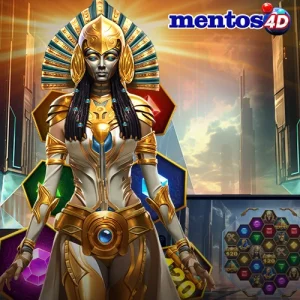In recent years, online gaming has emerged as a cultural phenomenon, reshaping how people across the globe engage with entertainment. From the early days of dial-up connections to today’s lightning-fast broadband, the landscape of online gaming has undergone a remarkable evolution, driven by technological advancements, shifting societal norms, and the insatiable human desire for connection and competition. 
A Fusion of Technology and Entertainment
Online gaming represents the convergence of technology and entertainment in its purest form. It harnesses the power of high-speed internet, cutting-edge Mentos4d graphics, and immersive sound design to transport players into virtual worlds where they can assume different identities, embark on epic quests, and compete against friends and strangers alike.
The advent of cloud gaming services has further democratized access to gaming, eliminating the need for expensive hardware and enabling players to enjoy high-fidelity experiences on a wide range of devices, from smartphones to smart TVs.
Building Bridges Across Borders
One of the most profound impacts of online gaming is its ability to connect people from diverse backgrounds and geographical locations. In multiplayer games, players collaborate with teammates from different continents, forming bonds that transcend cultural barriers and linguistic differences.
Online gaming has become a melting pot of cultures, where players exchange ideas, learn from one another, and forge lasting friendships. It’s not uncommon to hear stories of individuals who met their significant others or lifelong friends through online gaming platforms, highlighting the profound social connections that can emerge in virtual spaces.
The Rise of Esports: From Niche Subculture to Global Phenomenon
Esports, or competitive gaming, has surged in popularity in recent years, captivating audiences with its high-stakes competitions and skilled players. What was once dismissed as a niche subculture has blossomed into a multi-billion-dollar industry, complete with professional leagues, lucrative sponsorships, and sold-out arenas.
Games like League of Legends, Dota 2, and Counter-Strike: Global Offensive have become household names, drawing millions of viewers to live-streamed tournaments and championship events. Esports organizations have emerged as major players in the global entertainment landscape, attracting investments from traditional sports franchises and media conglomerates.
Addressing Challenges and Embracing Opportunities
Despite its many benefits, online gaming also faces its share of challenges. Issues like toxic behavior, cyberbullying, and addiction continue to plague the industry, prompting developers and community managers to implement stricter moderation policies and foster inclusive gaming environments.
Moreover, concerns about data privacy and security loom large in an era where online interactions are increasingly scrutinized. Developers must prioritize safeguarding players’ personal information and ensuring that gaming platforms remain safe and secure spaces for all users.
Looking ahead, the future of online gaming appears brighter than ever. Advancements in virtual reality (VR) and augmented reality (AR) technology promise to further blur the lines between the physical and digital worlds, offering players even more immersive and interactive experiences.
As online gaming continues to evolve, one thing remains clear: it has become more than just a form of entertainment—it’s a global phenomenon that transcends borders, languages, and cultures, bringing people together in ways previously unimaginable. Whether you’re a casual player, a competitive gamer, or a spectator cheering from the sidelines, online gaming has